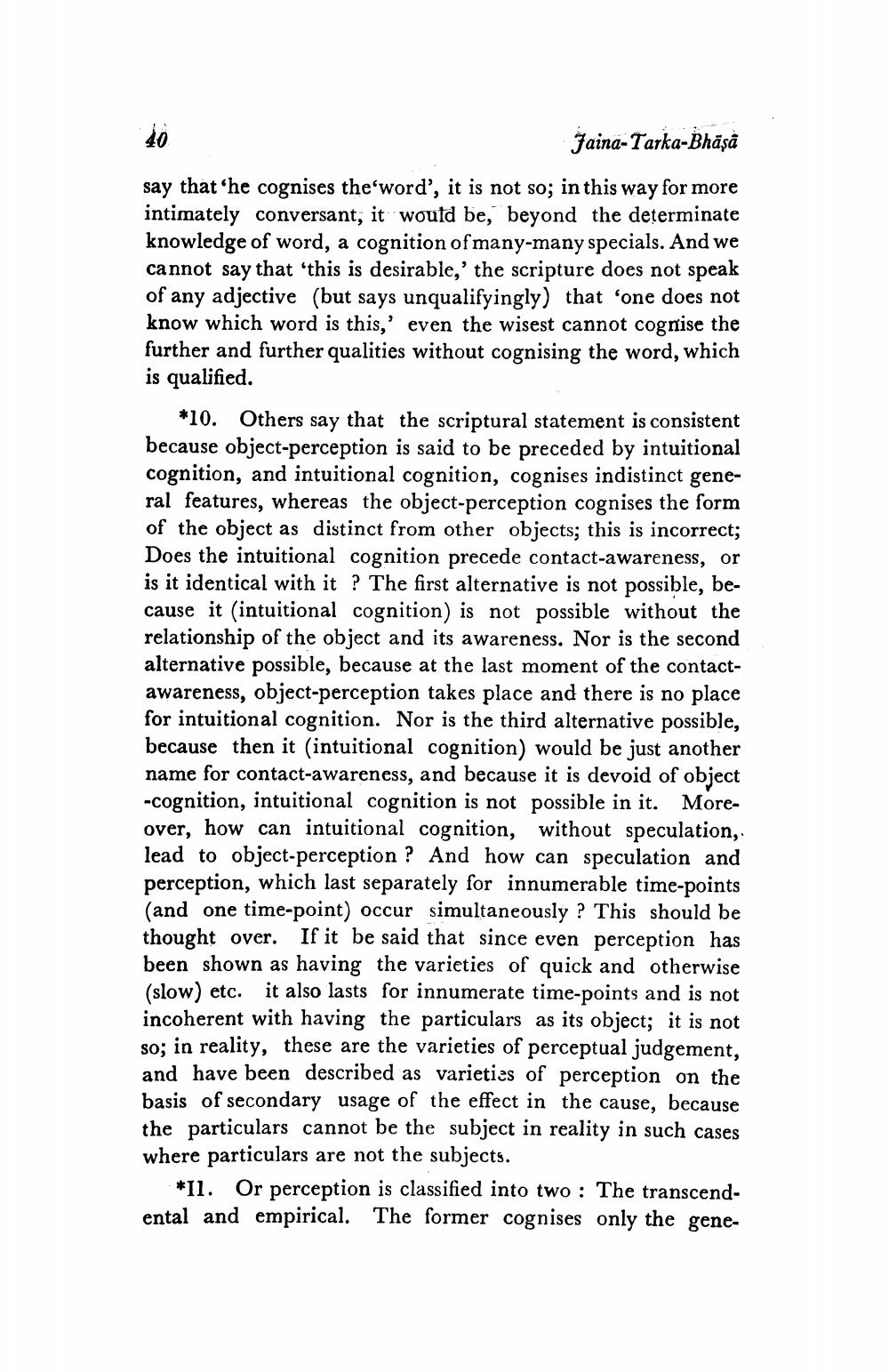________________
Jaina-Tarka-Bhāşå
say that he cognises theʻword', it is not so; in this way for more intimately conversant, it would be, beyond the determinate knowledge of word, a cognition of many-many specials. And we cannot say that 'this is desirable,' the scripture does not speak of any adjective (but says unqualifyingly) that 'one does not know which word is this,' even the wisest cannot cognise the further and further qualities without cognising the word, which is qualified.
*10. Others say that the scriptural statement is consistent because object-perception is said to be preceded by intuitional cognition, and intuitional cognition, cognises indistinct general features, whereas the object-perception cognises the form of the object as distinct from other objects; this is incorrect; Does the intuitional cognition precede contact-awareness, or is it identical with it ? The first alternative is not possible, because it (intuitional cognition) is not possible without the relationship of the object and its awareness. Nor is the second alternative possible, because at the last moment of the contactawareness, object-perception takes place and there is no place for intuitional cognition. Nor is the third alternative possible, because then it (intuitional cognition) would be just another name for contact-awareness, and because it is devoid of object -cognition, intuitional cognition is not possible in it. Moreover, how can intuitional cognition, without speculation, lead to object-perception ? And how can speculation and perception, which last separately for innumerable time-points (and one time-point) occur simultaneously ? This should be thought over. If it be said that since even perception has been shown as having the varieties of quick and otherwise (slow) etc. it also lasts for innumerate time-points and is not incoherent with having the particulars as its object; it is not so; in reality, these are the varieties of perceptual judgement, and have been described as varieties of perception on the basis of secondary usage of the effect in the cause, because the particulars cannot be the subject in reality in such cases where particulars are not the subjects.
*11. Or perception is classified into two : The transcendental and empirical. The former cognises only the gene




